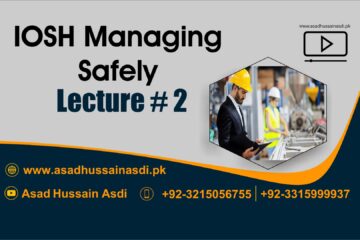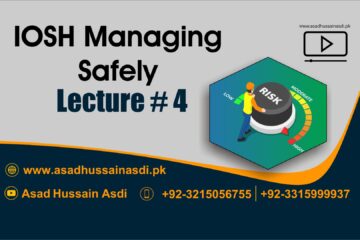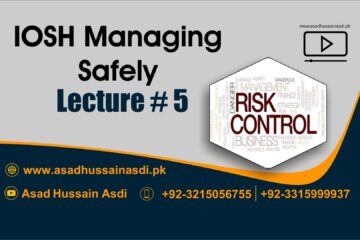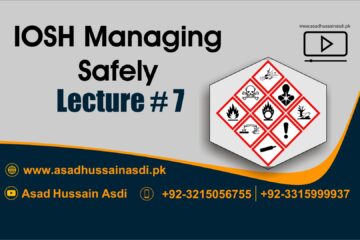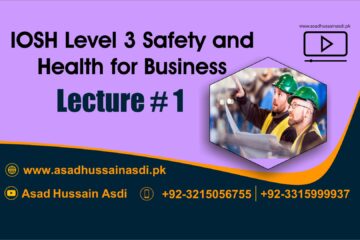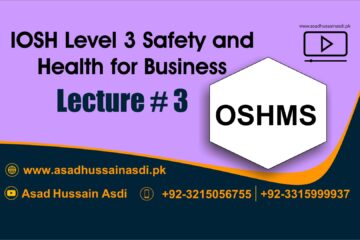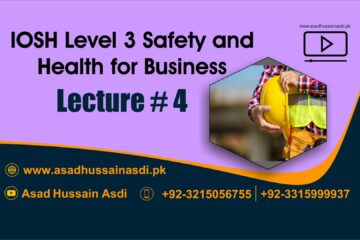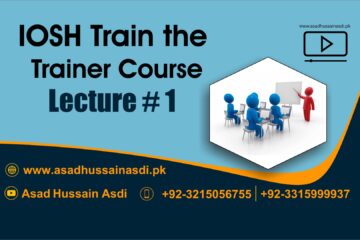ProQual Level 1 Award in Open Source Intelligence (OSINT) Course in Islamabad || Registration Open
Registration Open= +92-3315999937, +92- 3215056755 (WhatsApp Only)
Introduction
The ProQual Level 1 Award in Open Source Intelligence (OSINT) is aimed at all candidates who need to use the Internet as a research and investigative tool. Topics include:
- how the Internet works
- Internet safety when conducting research and investigation
- using the Internet as a research and investigative tool
- how the Internet can be used for research and investigation
The Regulated Qualifications Framework (RQF) is the single framework for regulated qualifications, the regulatory body for this qualification is the Office of Qualifications and Examinations Regulation (Ofqual). This qualification is accredited onto the RQF.
Entry Requirements
There are no formal entry requirements for this qualification. Centres should carry out an initial assessment of candidate skills and knowledge to identify any gaps and help plan the assessment.
Qualification Profile
Qualification title ProQual Level 1 Award in Open Source Intelligence
(OSINT)
Ofqual qualification number 603/7395/7 Level 1
Total Qualification Time 20 hours (16 GLH)
Pass or fail
Assessment
Internally assessed and verified by centre staff External quality assurance by ProQual verifiers
Qualification start date 19/4/2021 Qualification end date
Qualification Structure
Candidates must complete the 1 Mandatory unit: L/618/6929 Open Source Research and Investigation
Centre Requirements
Centres must be approved to offer this qualification. If your centre is not approved please complete and submit form ProQual Additional Qualification Approval Application.
Staff
Staff delivering this qualification must be appropriately qualified and occupationally competent.
Assessors/Internal Quality Assurance
For each competence-based unit centres must be able to provide at least one assessor and one internal quality assurance verifier who are suitably qualified for the specific occupational area. Assessors and internal quality assurance verifiers for competence-based units or qualifications will normally need to hold appropriate assessor or quality assurance verifier qualifications, such as:
- ProQual Level 3 Certificate in Teaching, Training and Assessing
- Award in Assessing Competence in the Work Environment
- Award in Assessing Vocationally Related Achievement
- Certificate in Assessing Vocational Achievement
- Award in the Internal Quality Assurance of Assessment Processes and Practices
- Certificate in Leading the Internal Quality Assurance of Assessment Processes and Practices
Support for Candidates
Materials produced by centres to support candidates should:
- enable them to track their achievements as they progress through the learning outcomes and assessment criteria;
- provide information on where ProQual’s policies and procedures can be viewed;
- provide a means of enabling Internal and External Quality Assurance staff to authenticate evidence
Assessment
Candidates must demonstrate the level of knowledge and competence described in the unit. Assessment is the process of measuring a candidate’s knowledge and understanding against the standards set in the qualification.
Each candidate is required to produce evidence which demonstrates their achievement of all of the learning outcomes and assessment criteria for each unit.
Evidence can include: – assignments/projects/reports
- worksheets
- portfolio of evidence
- record of oral and/or written questioning
Learning outcomes set out what a candidate is expected to know, understand or be able to do.
Assessment criteria specify the standard a candidate must meet to show the learning outcome has been achieved.
Learning outcomes and assessment criteria for this qualification can be found from page 7 onwards.
Internal Quality Assurance
An internal quality assurance verifier confirms that assessment decisions made in centres are made by competent and qualified assessors, that they are the result of sound and fair assessment practice and that they are recorded accurately and appropriately.
Adjustments to Assessment
Adjustments to standard assessment arrangements are made on the individual needs of candidates. ProQual’s Reasonable Adjustments Policy and Special Consideration Policy sets out the steps to follow when implementing reasonable adjustments and special considerations and the service that ProQual provides for some of these arrangements.
Centres should contact ProQual for further information or queries about the contents of the policy.
Results Enquiries and Appeals
All enquiries relating to assessment or other decisions should be dealt with by centres, with
reference to ProQual’s Enquiries and Appeals Procedures.
Certification
Candidates who demonstrate achievement of the qualification will be awarded a certificate giving the full qualification title –
ProQual Level 1 Award in Open Source Intelligence (OSINT)
Claiming certificates
Centres may claim certificates for candidates who have been registered with ProQual and who have successfully achieved the required number of credits for a qualification. All certificates will be issued to the centre for successful candidates.
Replacement certificates
If a replacement certificate is required a request must be made to ProQual in writing. Replacement certificates are labelled as such and are only provided when the claim has been authenticated. Refer to the Fee Schedule for details of charges for replacement certificates.
Learning Outcomes and Assessment Criteria
Understand how the Internet works 1 Explain how the Internet works
-
- Define the term World Wide Web
- Explain the terms Deep Web and Dark Web
- Describe the primary threat(s) to anyone using the Internet
- Describe the term Internet Protocol Address
- Define the following terms:
- web browser
- Domain Naming System
- Universal Resource Locator (URL)
- Hypertext
- Explain how search engines work
- Be aware of the policy and legislation associated with Internet research and investigation
- Understand how search engines and web browsers work
- Understand how search techniques can assist research
- Explain the principal legal constraints that need to be adhered to during Internet based research
- Explain how current Human Rights legislation describes the right to privacy
- Describe the other key legislation that covers Internet research and investigation
- Describe supporting documents that offer guidance for Internet research and investigation
- Explain how current Data Protection legislation covers holding personal information and data on individuals
- Summarise the difference between a search engine and a web browser
- Explain how search engines and web engines work
- Describe how meta-search engines work
- Explain how privacy focused search engines differ from traditional search engines
- Explain how Boolean operands increase the effectiveness of any Internet search
- Describe how colon commands are used
- Explain how different domains can benefit Internet research and investigation
- Explain how using different language domains bring different search results
- Describe how selected browser add-ons can assist in researc
- Understand how to effectively use images and geo-locational data
- Understand how a digital footprint is created
- Understand how search engines and software can be used to limit an
individual’s digital footprint
- Demonstrate safe research and investigative techniques when using the Internet
- Describe methods of viewing cached website information
- Explain how an image can be used as a search term
- Describe Internet geo resources that can be used to tag geographical locations with data and supporting information and view such data
- Explain how a user creates a digital footprint when using the Internet from data a browser provides
- Describe how search engines and web browsers use information gained from users
- Explain the term ‘cookie’ and how they are used
- Explain the term ‘malware’
- Explain how a digital footprint can be exploited
- Explain how privacy focused search engines can be
used to limit a user’s digital footprint
- Explain how a Virtual Private Network or TOR can improve a user’s privacy and security when using the Internet
- Use a suitable browser and privacy focused search engine that limits a digital footprint
- Employ suitable browser add-ons to enhance research and investigation
- Use suitable Boolean operands to enhance research
- Use suitable colon commands to enhance research
- Ensure research and investigation is in line with UK and organisational policy and UK legislation
- Use suitable software and applications 9.1 Employ appropriate browser add-ons
to support research and investigation when using the Internet
- Demonstrate how an image or video can be used as a search and be tagged with geographical information
- Find the Internet Protocol Address and owner of a website of interest
- Use appropriate online resources to view cached website information
- Conduct an Internet search using a foreign language domain and a language translation engine
- Limit their digital footprint when using 10.1 Demonstrate the use of a suitable browser
the Internet for research and investigation
- Employ appropriate browser add-ons
- Demonstrate the use of a privacy focused search engine
- Show how a Virtual Private Network or TOR can be used to hide an IO address and tunnel traffic
Assessment
There must be valid, authentic and sufficient for all the assessment criteria. However, one piece of evidence may be used to meet the requirements of more than one learning outcome or assessment criterion.









